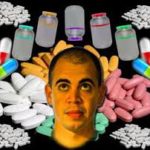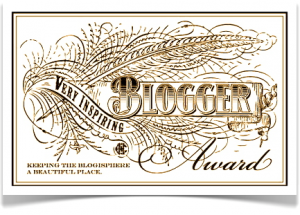By
Tracy Shawn, M.A.

As a long-term anxiety-warrior, I tried many different modalities to help combat my terrible “what-if” monsters. I started out trying cures without any scary side effects (that I could find, anyway), such as homeopathic remedies and flower essences, and when they didn’t work, I tried herbal tinctures—and when they didn’t work, I tried a series of prescribed anti-anxiety meds. Unfortunately, even those pharmaceutical weapons could not overtake the ever-evolving army of irrational fear that marched through my brain.
Luckily, though, I discovered that reading self-help books and the cathartic act of writing could help me win my mental war over irrational fear better than anything else I had ingested. Still, I had to accept that no matter how much I read or wrote, I am naturally prone to anxiety and that some days (or weeks, or months, even) I can get triggered and find myself back in the mucky trenches of dread. With time, I learned to incorporate a way to fortify my physical body, as well, in order to strengthen my armor of calm and, therefore, decrease my stress and anxiety.
Of course, what has worked for me may or may not work for you. We are all distinct, and our bodies react differently due to a vast number of reasons, including genetics, gender, age, physical health, etc. So, please don’t look to my experience alone on any one of the effective ways to deal with your own anxiety and stress. (If, for example, anti-anxiety meds are something you and your doctor feel will help you, they very well may be a solid solution). In fact, I also believe that what has or hasn’t worked in the past for an individual may very well change with time. That being said, below is a short list of supplements that have helped me. I’m passing it on to you, fellow anxiety-warriors, just in case one—or all—may help you fight your own battle.
MAGNESIUM
According to my trusty guide, “Prescription for Nutritional Healing,” supplementing one’s diet with the mineral magnesium can help prevent a number of ailments, including depression, irritability, and nervousness. Food sources include dairy products, fish, meat, seafood, apples, avocados, bananas, black-eyed peas, nuts, and figs. Personally, I take two Magnesium Citrate tablets (from Now Foods) before going to bed. I have found that it helps both my brain and muscles relax, which not only decreases my stress levels, but also leads to a better night sleep.
In the article “8 Ways Magnesium Relieves Anxiety and Stress” written by Deane Alban for the website bebrainfit.com, talks about how magnesium binds to and stimulates GABA, which helps “put the brakes on brain activity.” According to this article, low GABA is associated with numerous stress-related disorders, including anxiety. Therefore, magnesium may help counteract such symptoms as worry, racing thoughts, etc. connected to low GABA levels. To learn more, here is the link https://bebrainfit.com/magnesium-anxiety-stress/ to the full piece, which includes other reasons why magnesium can help reduce stress and anxiety, as well as recommended forms of magnesium and their typical uses.
For further information, including possible side effects and recommended dosages, please read this article by Kelli Cooper from LiveStrong.com: https://www.livestrong.com/article/486457-the-dosage-of-magnesium-for-anxiety/ (According to this piece, people with heart and kidney diseases should consult their physician before taking magnesium, and pregnant woman should not exceed 350 mg dosage per day). As with any dietary supplement, always check with your health practitioner before taking.
GREEN AND HERBAL TEAS

There are many teas available that can quiet the chattering of an over-worked brain. In fact, even though green tea contains caffeine, it can calm people down due to its L-theanine content. Since it is caffeinated, though, it’s best to drink it before 2:00 in the afternoon if you suffer from insomnia.
In an article in the Huffington Post by Toby Nwazor, there is a list of other calming teas that do not contain caffeine, and, therefore, can be helpful for sleep. The first suggested tea is peppermint, which contains the natural muscle relaxant menthol. Menthol helps reduce tension and irritability, and can help induce a more peaceful sleep (but pregnant woman should not take it, as it increases the risk of miscarriage). Chamomile tea’s properties also help to decrease muscle tension and can help combat insomnia. Lemon balm reduces the stress hormone cortisol and relaxes the body without causing drowsiness. A great tea for daytime, lemon balm can also elevate mood. Passionflower tea contains the flavonoid, flavone chrysin, which has anti-anxiety benefits (avoid if taking other sedatives and not for children under six months and pregnant or lactating women). And last but not least, rose tea helps ease the mind due to its aromatic effect.
I drink of all the above teas at different times, and also enjoy Celestial Seasonings “Tension Tamer,” which combines a number of herbs and B vitamins to help ease stress. I also appreciate the cover art of the serene lady in a long red dress calmly sitting on the back of a reclined dragon. And, let’s face it; even the act of drinking a nice, warm cup of tea—no matter what’s in it—can have a calming effect in and of itself!
CBD OIL
Full disclosure here: I recently added CBD oil to my anti-anxiety arsenal after a representative with VerifiedCBDOil.com contacted me through my website, offering me a free sample of their anti-anxiety and anti-stress spray for a possible write-up because my debut novel, “The Grace of Crows,” is about a woman overcoming anxiety and I’ve written many nonfiction pieces about how to combat anxiety and stress. I explained that I would only mention it if I thought it worked for me. Happily, it did—and it arrived at a perfect time; right before a road trip with my husband, whose driving can cause my heart to jump into my throat at times.
But I digress; for those of you who don’t know what CBD is, it’s a natural component of the hemp plant and is not psychoactive. In other words, it won’t get you high (unlike THC, which is also found in hemp, but is psychoactive). I was willing to try CBD because I heard that the side effects weren’t that severe (such as dry mouth, slight light-headedness, and a small drop in blood pressure) and that a number of people swore that it did, indeed, decrease their anxiety. To read more about CBD’s possible side effects, here’s a link that helps clarify: https://www.webmd.com/vitamins/ai/ingredientmono-1439/cannabidiol
I also read an article titled “Anxiety Relief Without The High? New Studies on CBD, A Cannabis Extract” on NPR’s website by Allison Aubrey that mentioned how CBD exhibits anti-anxiety properties and that one study showed how participants who took CBD reported significantly less anxiety than those who took a placebo before giving a speech to a large audience. So, I happily sprayed away (VerifiedCBD Anti-Anxiety & Anti-Stress Spray also includes a propriety blend of GABA and valerian root) when we got stuck in traffic and when, well…just when I needed to. It does seem to take my stress down several notches and I have not felt any side effects. It’s also very handy, the size of a lipstick, and stays in my purse, ever ready for as needed spritzes!
Author and speaker Tracy Shawn lives and writes on the Central Coast of California. Her debut novel, The Grace of Crows (Cherokee McGhee, 2013), won awards for Indie fiction, including the 2013 Jack Eadon Award for Best Book in Contemporary Drama and Second Place for General Fiction from Reader Views. She’s written numerous articles for print and online publications and is a frequent contributor to psychcentral.com. She has currently finished her second novel and is now working on her third.
